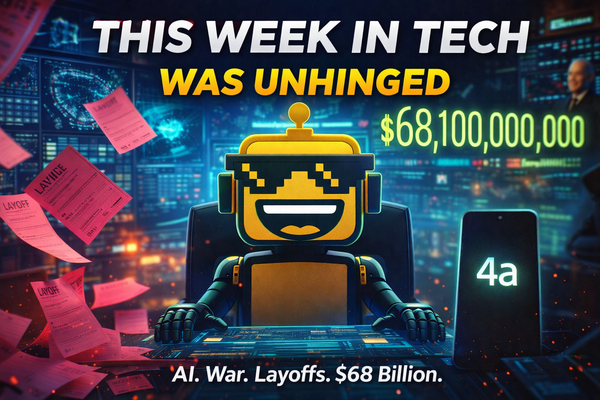Clay Raises $100M to Make Marketing Feel Like Coding—Because Spam is Better When It’s Programmatic
Clay raises $100M to turn AI-powered sales automation into a coding playground for marketing teams.

Once upon a time, a marketer opened HubSpot, copy-pasted a mildly desperate pitch, and prayed to the open rate gods. But now, thanks to Clay—a self-described “AI-driven marketing startup” that just raised a casual $100 million—you can replace that sweaty-palmed ritual with...a complex AI workflow that requires as much technical finesse as your average hackathon.
Because who wouldn’t want to reinvent cold outreach as an overengineered Rube Goldberg machine?
In a New York Times feature, Clay’s founders unveil their vision of a world where salespeople aren’t just messaging you on LinkedIn—they’re building Python-esque automations to find your email, scan your office parking lot on Google Maps, analyze how many cars are outside, and determine whether you’re “ready to buy.”
(That’s not a joke. That is literally an example given by CEO Kareem Amin, who, by the way, posed for his NYT headshot in bright orange overalls, presumably because dressing like an indie game developer is now required to close a Series C.)
Clay calls this brave new user the “go-to-market engineer,” a phrase they invented in 2023 that roughly translates to: “We took the marketing department and gave them GitHub accounts.” Because sales enablement tools aren’t cool unless they break your brain and your attribution model.
Naturally, VCs are eating it up like it’s oat milk for B2B. Google’s investment arm CapitalG led the round, alongside Sequoia and Meritech, bringing Clay’s valuation to $3.1 billion. Not bad for a company that started with the vague goal of “democratizing programming” and pivoted directly into automating personalized spam at scale.
To be fair, Clay is doing well. They’ve got 180 employees, claim to be close to profitability, and serve 10,000+ customers—including OpenAI, which feels a little like Frankenstein hiring his own monster to help with sales ops. The software is flexible, powerful, and, according to a former employee quoted in the Times, “unwieldy,” which is enterprise-speak for “if you don’t know what an API call is, good luck.”
But the real magic of Clay isn’t the tech—it’s the branding. This isn’t sales automation. This is engineering. This is AI. This is the future of go-to-market, assuming that future involves a lot of “if-then” logic and debugging your outbound sequence because your Calendly integration broke again.
Also: user clubs. Yes, Clay has spawned “Claygencies” (agencies built entirely on its software) and more than 60 global user clubs where marketing ops folks presumably gather to swap YAML scripts and talk about the sexiest way to scrape a contact database. Somewhere out there, there is a man named Brandon who refers to himself unironically as a Clay Evangelist, and he is thriving.
Of course, Clay insists this isn’t about automating people out of jobs. Investors assure us it’s not going to unleash a dystopian tidal wave of AI-written spam and SDR layoffs. No, Clay is about “letting people focus on more personalized pitches”—the kind that involve scanning your LinkedIn activity and your office parking lot before crafting a heartfelt message that begins, “Quick question...”
What we’re witnessing is the Salesforceification of everything, but with more code snippets and fewer humans. It’s the perfect product for a world where “growth marketing” means automating the outreach, the targeting, and eventually, the follow-up remorse.
So congrats to Clay on the fundraise, the valuation, and the successful rebranding of cold outreach as a technical discipline. The next time you get an email with your name spelled right and an eerily accurate reference to your latest tweet, just remember—it wasn’t a human who wrote it. It was a Clay user, wearing dark trousers and a thousand-yard stare, frantically wiring their GPT output into Notion via webhook.
And they are a go-to-market engineer. Please clap.




